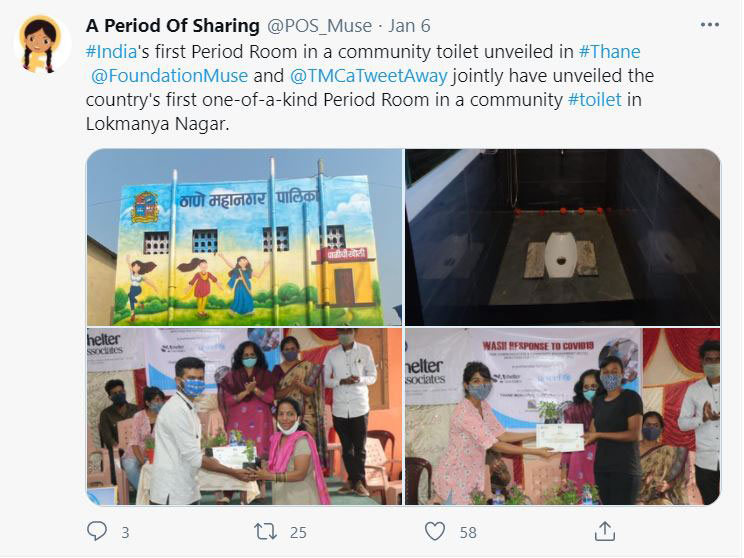Did you know that the Ministry of Health found that “roughly 120 million menstruating adolescents in India experience menstrual dysfunctions, affecting their normal daily chores?” According to multiple surveys conducted by them in 2002, 2005, 2008, and 2012, there are close to 60,000 cases of cervical cancer deaths being reported every year, two-third of which are due to poor menstrual hygiene.
There’s no denying that whether it is issues related to protection or disinfection, everything is overlooked when it comes to menstrual hygiene. However, in recent years, information around menstrual health, menstrual issues, and hygiene is spreading, and more efforts are being made to educate young women on the benefits of feminine hygiene products. And in an effort to make menstrual hygiene a norm, the Thane Municipal Corporation (TMC) has unveiled the ‘period room’ for women, a first-of-its kind initiative in the county.

In collaboration with a non-governmental organisation (NGO), the TMC has instituted a period room, following a survey conducted in district’s slum areas covering about 1,000 women. The study brought to the fore various issues faced by women from various squatter settlements during their monthly cycle. The period room initiative works to provide women with a hygienic space they can use. Consisting of higher water supply with a Jetspray, a mirror, a dustbin with a bottom lid to prevent any person from touching soiled napkins, a soap dispenser, and hanging cloth hooks, to name a few.
In a statement to the media, Manish Joshi, deputy commissioner, Thane Municipal Corporation, said, “A survey has been conducted in Thane through 2019 to study women’s menstrual hygiene practices covering 1,000 women in 15 slums in Thane. The primary findings of the survey revealed the heavy dependency of women in slums on community toilet and the problems they faced to manage menstruation due to lack of water, unsafe changing rooms, absence of disposal mechanism for soiled napkins.”
The initiative is undoubtedly a step in the right direction, and there’s hope that provisions for more period rooms are made in urban and rural areas across the country.
Disliamer: Image used for representational purposes only